Building a Sustainable Workforce: Reimagining DEI through ESG

How can companies create meaningful, impactful DEI programs and avoid the pitfalls of some traditional programs?
Navigating the Social Pillar: Human Capital and Social Capital Risk
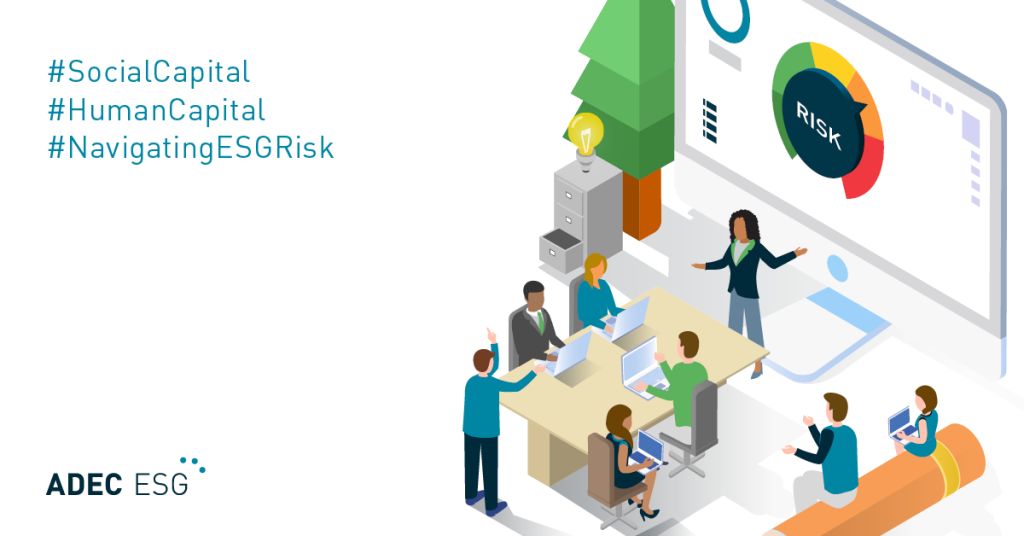
The “S” may be the most misunderstood and overlooked pillar in ESG. Today, we’ll explore the risks that lie behind lagging on the social aspects of ESG and outline real-world examples that may look familiar.
Seasons of ESG: Navigating Sustainability Initiatives

Demands on ESG programs are at an all-time high. Here, we break down several key areas within ESG to help you visualize a yearly timeline and tackle your initiatives effectively.
2022 in Review: Growth in Sustainability
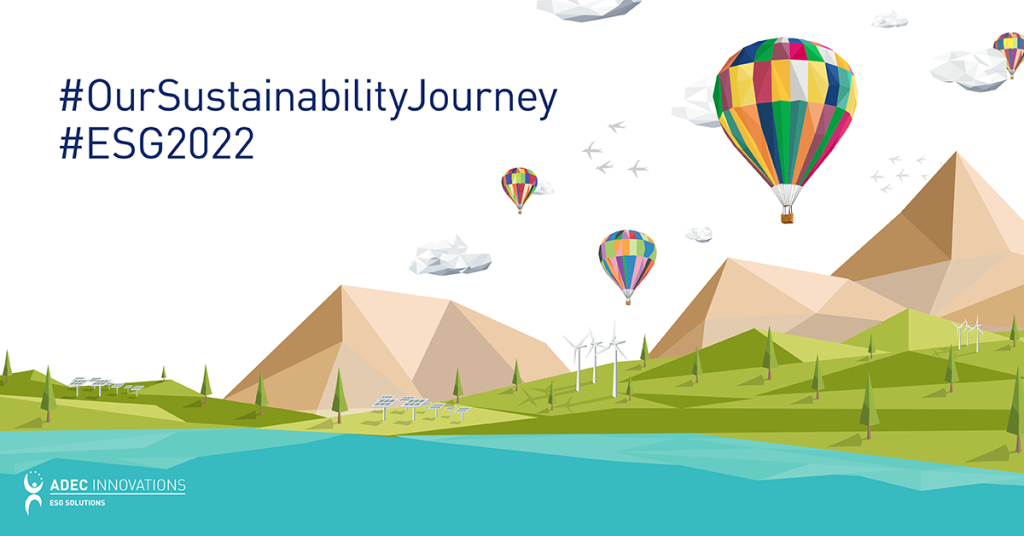
The ESG space took major strides in 2022—and ADEC ESG Solutions followed suit.
Streamlining Decarbonization (Webinar Recap)
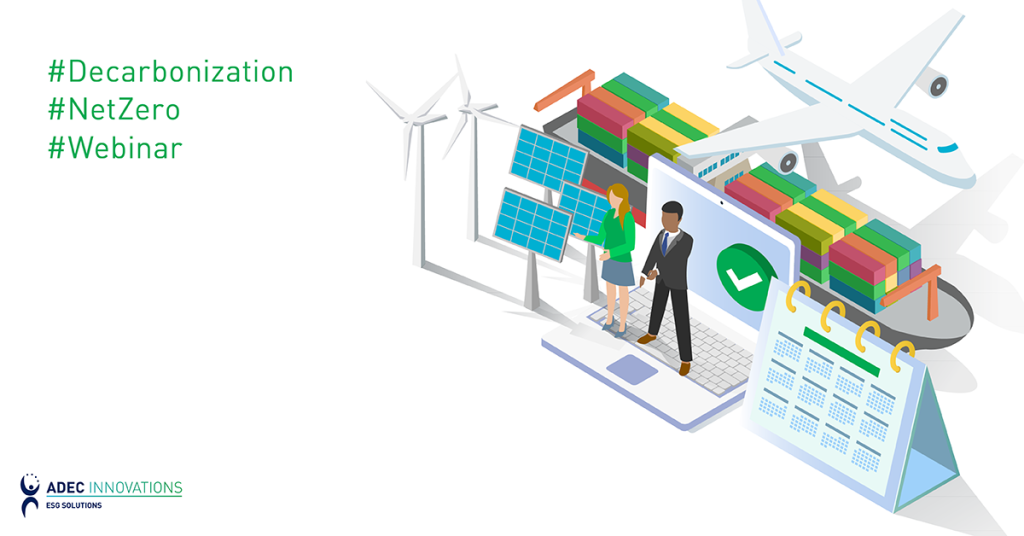
Decarbonization has become one of the ruling topics in the ESG space, but for many companies, it may seem like a daunting undertaking. It doesn’t have to be.
Environmental Science or Systems Science?
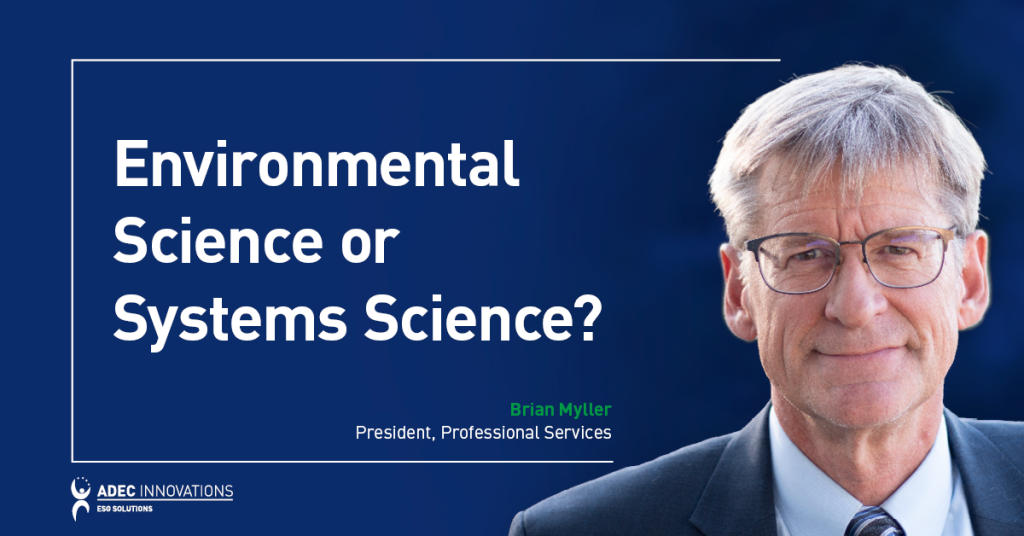
With more data comes greater expectation—and opportunity.
Inflation Reduction Act of 2022: What It Means for Your Climate Strategy
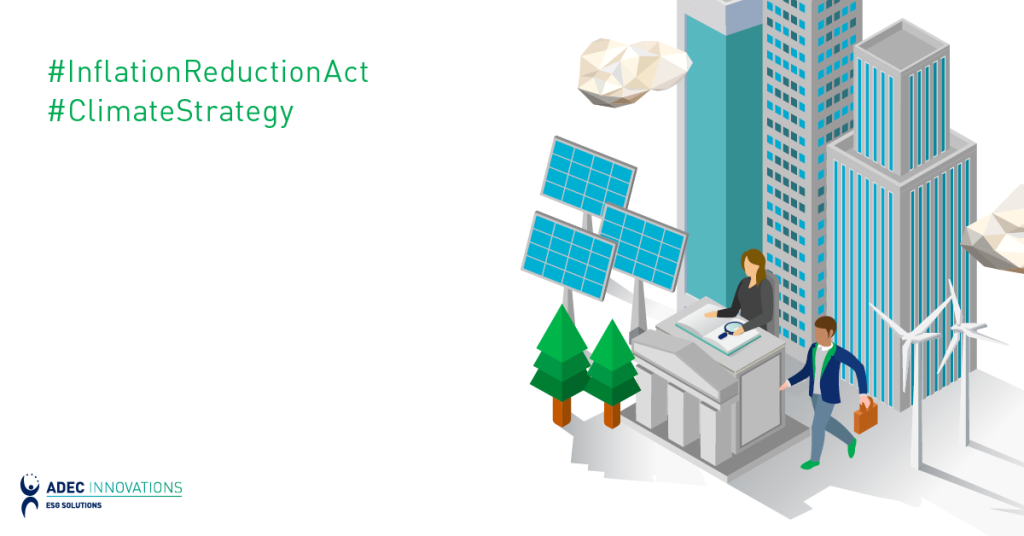
The Inflation Reduction Act of 2022 promises historic investments in building the clean energy economy and reducing emissions. What do these changes mean for businesses like yours, and how does the Act support companies on the path to decarbonization?
Getting Started with ESG Foundations (ESG Professional Series Recap 1)

Part 1 of our workshop series with USGBC-LA covers foundational topics in ESG, as well as trends and drivers in the sustainability space.
2021 in Review: A Transition to Impact, Transparency, and Governance
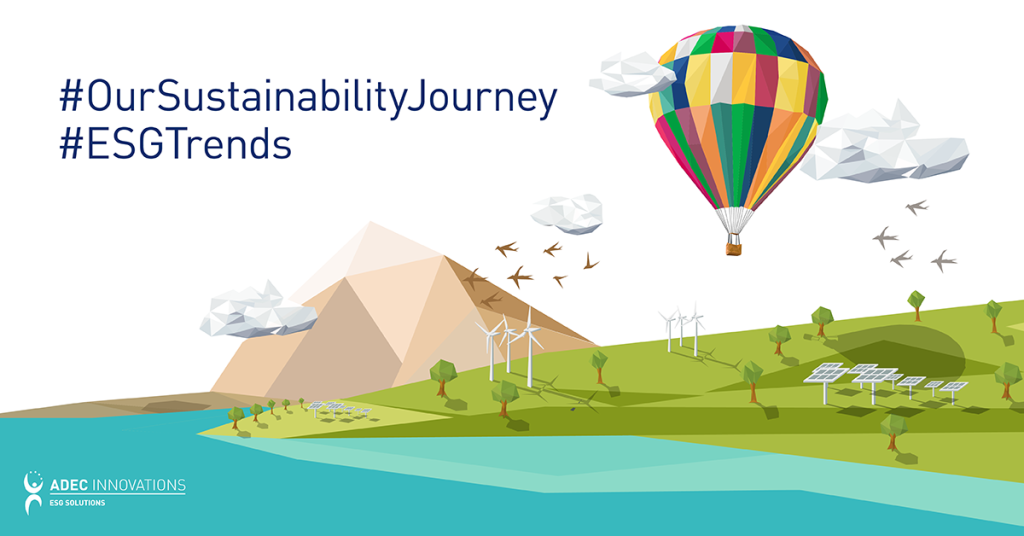
In this retrospective, the ADEC ESG team takes a look back at 2021—from the ESG trends we saw come to life through our global clients to what we think this means for the sustainability space in the coming years.
Understanding the Mechanics of ESG Shareholder Proposals (Webinar Recap)
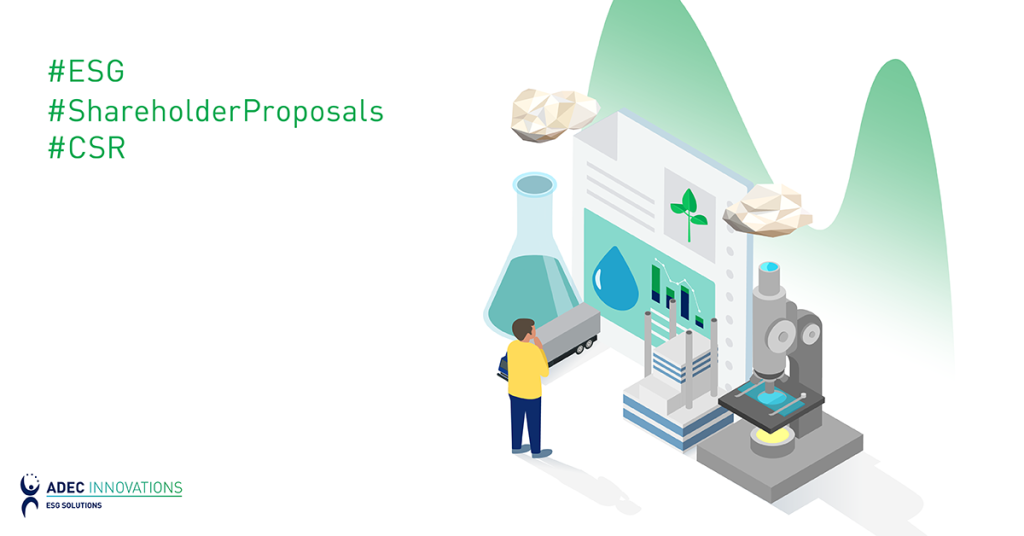
In a recent webinar hosted by global law firm Katten, ADEC ESG Solutions’ George Lu spoke on the mechanics of ESG shareholder proposals and what’s driving the push for sustainability.
Private Sector Resiliency: ESG Insights and Opportunities for an Evolving Landscape
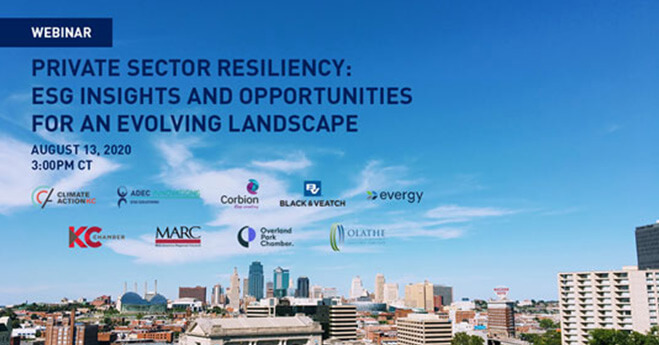
Environmental, social, and governance (ESG) are vital parts of businesses across all industries, as there exists a growing demand for businesses to measure and manage corporate sustainability and build resiliency worldwide.
ESG Investing and Climate Change
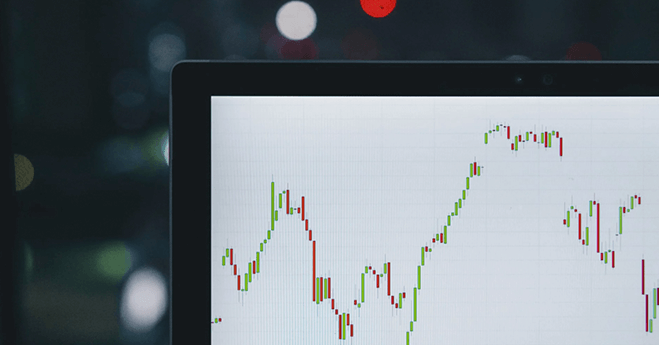
The toll of climate change on businesses is highlighted by research published in a study by the London School of Economics. The study found that the global economy suffers losses up to USD 24 trillion due to climate change.
The Importance of Machine Learning and Building a Data Set in Business

Machine learning can significantly contribute to business’ efficiency. It can help identify which products and services sell well during defined periods, allowing companies to adjust their sales operations accordingly to improve their bottom line. Machine learning can also detect which parts of a business process are taking up too much time and resources, enabling companies to make improvements before profits are undermined.
Why Addressing Deforestation Makes Good Business Sense

Deforestation can be detrimental and have serious effects on businesses.
Why Companies Are Buying Renewable Energy

Corporate organizations are among the biggest buyers of renewable energy.
Policies to End Deforestation and Climate Change in Business Supply Chains

Deforestation and climate change are worldwide problems. If not addressed they can have serious ramifications on businesses.
How Businesses Help Address Forced Labor and Slavery

Despite laws and regulations that prohibit their practice, forced labor and slavery are still widespread. According to a 2014 report by the International Labour Organization (ILO), roughly 21 million people are currently subject to forced labor. An estimated 68 percent of them are being exploited in the private economy, by individuals or enterprises, primarily in agriculture, construction, domestic work, manufacturing, mining and utilities.
Why Addressing Corruption Is a Key Component of Sustainability

The term “sustainability” is popularly associated with environmental protection. What many people do not know is that eliminating corruption in all its forms is also important in achieving sustainability. Principle 10 of the UN Global Compact is, “Businesses should work against corruption in all its forms, including extortion and bribery.” It recognizes the fact that ethical business practices is a key component of sustainability.
The Importance of Climate Risk Disclosure for Business

With the effects of climate change becoming increasingly pronounced, disclosure of climate risks is critical for businesses. Failure to make a disclosure can facilitate poor investment decisions, asset losses, and the continuation of trade practices that lead to climate change.
How the Business Community Can Help Alleviate Poverty

Poverty can have adverse effects on business operations. Poverty is often associated with illiteracy, which can affect productivity. Employees with poor literacy skills may struggle to fully understand workflow instructions. Consequently, they are prone to making work-related mistakes, resulting in lost profits and reduced customer confidence.
The Impact of Conflict Minerals on Business

Minerals are important ingredients in manufacturing. Gold and silver are used in jewelry, currency, computers, electronics and medicine. Copper is used in motors and electrical wiring. Cadmium is a main ingredient of batteries.
The Millennials’ Idea of a Sustainable Business

Millennials (the demographic born between 1980 and 2000) are currently the largest generation of consumers in history. In 2014, Millennials aged between 17 and 34 were expected to spend at least USD 200 billion each year from 2017 onwards. This age demographic is also expected to spend around USD 10 trillion in their lifetimes.
What is Impact Investing?
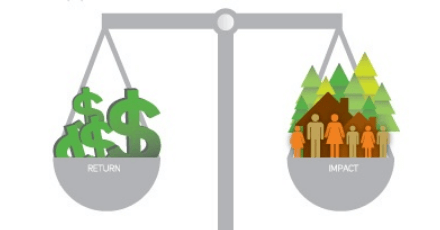
Conventional wisdom dictates that the goal of businesses is to generate profit — and this goal may come into conflict with objectives such as environmental conservation and responsibly-sourced consumer goods. Impact investing dispels these beliefs by offering opportunities for stakeholders to invest — and, ultimately, profit from — social and environmental solutions.
How Do We Integrate Climate Change into Our Current Business Strategy?

Climate change awareness is growing and companies of all sizes and industries are starting to consider their own impacts. Every company has their own challenges and opportunities, and integrating climate change into your business strategy can help ensure you are systematizing your process to focus on the impacts that are relevant and mitigation strategies that are meaningful and realistic. How can climate change and business strategy work hand-in-hand in this age?
Best Practices in Sustainability

Many companies incorporate sustainability practices in all areas of their operations. From policies, production processes, products and services, every member of their corporate community takes part in promoting sustainability.
Go for Green: Aiming for Sustainability Indices

Many organizations are endangered by the unprecedented environmental risks that the world is experiencing today. As the world’s industries are affected by drought, heat stress and flooding, organizations are taking the necessary steps to mitigate climate risks.
ESG: A Growing Interest for Business Investors

Many organizations are strategically choosing to become “greener” and socially responsible in their daily operations. Sustainability initiatives are serving to improve operational efficiency and are increasingly informing the purchasing decisions of customers and investors alike. Where competition between businesses is evident, companies are taking the necessary steps to stay ahead of their peers. Being environmentally sustainable and socially responsible is increasingly recognized as an essential element of corporate strategy, especially as regulations increase globally.
Why ESG Integration is Good for Your Business

The need to fully integrate environmental, social, and governance (ESG) factors into business models is continuing to grow.
Fighting the Game-Changer with Mitigation

Today’s climate-driven economy has forced us to be wary of climate change’s ongoing threats to various businesses in the public and private sectors. Undeniable evidence of climate change impacts can be felt all over the world.
The Need to Optimize an Organization’s Supply Chain

The ability of a company to be sustainable is no longer an option: it has become a necessity. In doing so, organizations must learn to prioritize the optimization of their supply chain operations. Today, major organizations worldwide are utilizing sustainability measures to reduce their carbon emissions.